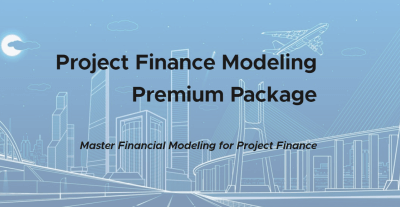🎁 Exclusive Discount Just for You!
Today only: Get 30% OFF this course. Use code MYDEAL30 at checkout. Don’t miss out!
The course covers essential and advanced topics related to the income statement, balance sheet, and cash flow statement, and will provide you with a robust skillset for analysis of advanced accounting issues that appear often in real-world financial analysis.
File Size: 1.53 GB.
Gregory Ahuy & Bekzod Kasimov – Financial Model Online – Accounting for Financial Modeling

Accounting for Financial Modeling will give you the skills to understand and analyze the financial statements of public and private companies.
Accounting for Financial Modeling Course – Objectives:
Accounting for Financial Modeling will give you the skills to understand and analyze the financial statements of public and private companies. The course covers essential and advanced topics related to the income statement, balance sheet, and cash flow statement, and will provide you with a robust skillset for analysis of advanced accounting issues that appear often in real-world financial analysis. The focus is on the US GAAP accounting, however, whenever the US GAAP deviates from the IFRS accounting, the difference will be reviewed.
In an online environment, you will go from basic accounting to advanced accounting topics relevant for investment analysis, debt structuring, and financial modeling of both public and private companies. This course is filled with quizzes and exercises that cover advanced accounting problems that you will not find in introductory accounting courses.
By the end of this course, you will have gained advanced accounting knowledge and you will be able to understand and analyze complex financial statements of public and private companies.
What This Course is About?
This course is about understanding the practical side of the complex accounting for public and private companies. In this course, we start with basic accounting subjects and quickly advance to complex issues that are not usually covered in most accounting courses.
The topics covered:
– Income Statement, Balance Sheet, and Cash Flow Statement;
– Accounts Receivable, Inventory, PP&E, Goodwill, Deferred Revenue, Accounts Payable;
– Net Operating Losses, Deferred Tax Asset & Liability;
– Revenue, COGS, SG&A, R&D, Depreciation, Amortization, Interest Expense, and Taxes;
– Debt & Equity Financing, APIC, Retained Earnings;
– Debt Financing Fees, Capitalized Interest, PIK Debt;
– Operating and Finance Leases;
– Bonds, Original Issue Discount & Premium;
– M&A Accounting;
You will learn about:
- How to account for different types of revenues, costs and expenses;
- How to account for assets and liabilities;
- How to account for equity;
- How to construct the income statement, balance sheet and cash flow statement;
- How to account for stock-based compensation;
- How to account for debt issuance costs, commitment fees, capitalized interest and PIK loans;
- How to account for bond premiums and discounts;
- How to account for operating and finance leases;
- How to account for M&A transactions;
This is the same comprehensive financial training used to prepare analysts and managers at top financial institutions and infrastructure funds.
How Does It Work?
The course length is over 8 hours.
First, we will review the basics of revenue, expenses, taxes, and net income in order to understand all essential components that make up the income statement. We will then construct an income statement for the fictitious ice cream business from scratch.
In the second part, we will review the accounting for assets, liabilities, and equity. We will cover the short-term and long-term assets such as cash, accounts receivable, prepaid expenses, inventory, PP&E, intangible assets, and goodwill. We will also cover short-term and long-term liabilities and equity such as accounts payable, deferred revenue, and debt and equity financing. We will end the second part of the course with homework focused on building the balance sheet of our ice cream business.
In the third part, we will focus on the cash flow statement and we will use the indirect method to generate the cash flow statement for the ice cream business.
In the fourth and final part, we will cover the advanced accounting topics focused on stock-based compensation, deferred taxes, debt fees, PIK loans, bonds, operating and finance leases, and M&A accounting.
Is This Course For You?
Yes, if you need to build, review or analyse financial models.
Typical students include analysts, managers, senior managers, associate directors, financial advisors, financiers and CFOs from project companies, investment banks, private equity and infrastructure funds.
Course Prerequisites
You will need the basic knowledge of investment concepts such as NPV and IRR.
Course Curriculum
Part 1: Basic Accounting
- Financial Statements(6:50)
- Revenue(6:58)
- COGS(3:24)
- SG&A and R&D(2:40)
- Depreciation and CAPEX(6:05)
- Intangible Assets and Amortization(4:33)
- EBIT and EBITDA(6:18)
- Interest Expense, Interest Income and Taxes(5:02)
- Net Income(6:07)
- Homework #1(11:21)
- Homework #2(8:53)
Part 2: Balance Sheet
- Introduction to Balance Sheet(7:03)
- Current Assets, Cash & Cash Equivalents(2:09)
- Accounts Receivable(2:24)
- Inventory(10:37)
- NCA: Property, Plant and Equipment(13:15)
- Prepaid Expenses(2:49)
- Intangible Assets(5:19)
- Goodwill(3:58)
- Accounts Payable(4:58)
- Deferred Revenue(11:32)
- Debt(9:36)
- Equity(12:25)
- Double Entry Accounting(11:36)
- Homework #3(15:17)
- Homework #4(66:47)
Part 3: Cash Flow Statement
- Introduction to Cash Flow Statement(10:38)
- Cash Flow Statement Example(7:32)
- Homework #5(12:54)
Part 4: Advanced Accounting Topics
- Part 4: Advanced Accounting Topics – Stock Based Compensation(26:07)
- Deferred Tax Assets, Liabilities & Net Operating Losses(35:13)
- Complexities in Accounting for Debt(54:41)
- Operating & Finance Lease Accounting(26:39)
- Accounting for Investments(59:17)
Course Features
- Lectures 0
- Quizzes 0
- Duration 10 weeks
- Skill level All levels
- Language English
- Students 159
- Assessments Yes


